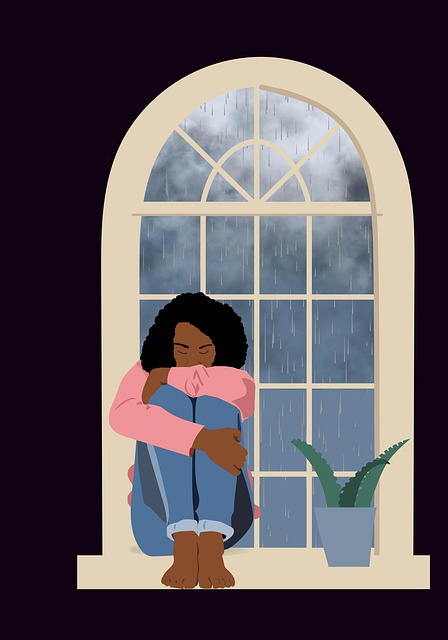Coping skills, from deep breathing to cognitive behavioral therapy (CBT), are crucial for couples facing communication issues. Effective communication strengthens emotional intelligence, improves conflict resolution, and prevents depression. Adult couples' therapy tailored to communication problems enhances self-awareness, encourages active listening, and tackles unspoken mood management. Cultural sensitivity in mental healthcare ensures tailored coping strategies for diverse backgrounds. Community outreach programs complement therapy, promoting healthier relationship dynamics and equitable access to mental well-being resources. For adults seeking to address relationship challenges, such therapy significantly benefits overall mental health by fostering a supportive environment where both partners feel heard and valued.
Coping skills development is a crucial aspect of maintaining emotional well-being, especially in adult relationships. This comprehensive guide explores essential strategies to navigate and overcome communication barriers within couples. From understanding the foundational role of coping skills to identifying issues and employing therapeutic approaches, we delve into practical ways to enhance communication. Additionally, we present building resilience as a game-changer for effective coping, offering valuable insights for adults seeking to strengthen their relationships through better communication in therapy.
- Understanding Coping Skills: A Foundation for Emotional Well-being
- Identifying and Overcoming Communication Barriers in Adult Relationships
- Therapeutic Approaches to Enhance Couples' Communication
- Building Resilience: Practical Strategies for Effective Coping Skills Development
Understanding Coping Skills: A Foundation for Emotional Well-being

Understanding coping skills is a crucial foundation for emotional well-being. These skills enable individuals to navigate life’s challenges and manage stress in healthy ways. By developing effective coping mechanisms, adults can improve their ability to handle difficult emotions, enhance resilience, and promote overall mental health. Coping strategies range from simple techniques like deep breathing and mindfulness to more complex approaches such as cognitive behavioral therapy (CBT) and communication strategies.
For couples facing communication issues, integrating these skills into their relationship can significantly improve emotional intelligence and prevent depression. Effective communication strategies facilitate open and honest dialogue, resolving conflicts constructively. This, in turn, fosters a supportive environment where both partners feel heard, understood, and valued, thereby strengthening the bond between them.
Identifying and Overcoming Communication Barriers in Adult Relationships

Effective communication is a cornerstone of healthy adult relationships, but many couples struggle with unproductive patterns. Identifying and overcoming these barriers is essential for fostering connection and resolving conflicts. In therapy for adults with couples communication issues, professionals guide partners to enhance self-awareness exercises, enabling them to recognize triggers and understand each other’s perspectives. By practicing active listening and open dialogue, individuals can improve their emotional responses and create a safer space for sharing thoughts and feelings.
One significant challenge is unspoken mood management, where negative emotions are either ignored or expressed in unhealthy ways. Through therapy, couples learn to acknowledge and constructively address these issues, ensuring that discussions remain focused on the problem rather than escalating into personal attacks. Community outreach program implementation can also offer valuable resources for enhancing communication skills and promoting healthier relationship dynamics.
Therapeutic Approaches to Enhance Couples' Communication

Effective communication is a cornerstone of any healthy relationship, but many adult couples struggle with misaligned expectations and misunderstandings. Therapeutic approaches designed to enhance couples’ communication can significantly improve their relationships. These therapies go beyond simple talk therapy by integrating strategies for emotional regulation, conflict resolution, and social skills training. By learning to express feelings openly, listen actively, and understand each other’s perspectives, couples can reduce the impact of stress and burnout prevention while fostering deeper connections.
In these therapeutic settings, professionals guide partners through exercises that encourage empathy and understanding, helping them navigate challenging conversations constructively. This process not only improves communication but also strengthens the emotional bond between partners, creating a more supportive environment for both individuals. Tailored interventions can address specific communication issues, ensuring each couple receives personalized guidance to meet their unique needs.
Building Resilience: Practical Strategies for Effective Coping Skills Development

Building resilience is a cornerstone of effective coping skills development. By fostering adaptability and bounce-back ability, individuals can better navigate life’s challenges and stress. Practical strategies include cultivating self-awareness exercises to understand triggers and emotional responses, enhancing communication skills for expressing needs and seeking support, and incorporating healthy coping mechanisms such as mindfulness, exercise, and social connection. These approaches empower individuals to manage difficult situations with greater equanimity and resilience, ultimately improving mental well-being.
In the context of therapy for adults and couples addressing communication issues, cultural sensitivity in mental healthcare practice plays a crucial role. Recognizing and incorporating diverse perspectives ensures that coping strategies are tailored to individual needs, reflecting their unique cultural backgrounds. Mental health policy analysis and advocacy further contribute by promoting equitable access to effective coping skills development programs, fostering supportive communities that prioritize mental well-being for all.
Coping skills development is a vital aspect of fostering emotional well-being, especially in adult relationships. By understanding and addressing communication barriers through therapeutic approaches tailored to couples, individuals can enhance their connections and overall happiness. Building resilience equips adults with practical strategies to navigate life’s challenges effectively, ensuring they have the tools to cope and grow from difficult situations. Through therapy for adults’ couples’ communication issues, it becomes possible to transform relationships and improve mental health outcomes.









